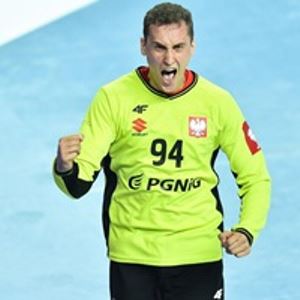

Poland ready to rumble under coach Rombel
Poland ready to rumble under coach Rombel
Poland secured their participation in the Men’s EHF EURO 2020 only in a nail-biting 26:23 victory over Israel in the last round of the qualifiers.
Since hosting the EHF EURO in 2016 and finishing fourth at the Rio Olympics later that year, Poland have been through hard times.
Experienced players from the golden age of Polish handball retired from international duty and the team had four coaches over the past three years.
Even though there was not too much time to create a new team, head coach Patryk Rombel’s players will do their best to get a strong EHF EURO result.
Three questions ahead of Men’s EHF EURO 2020:
- What has happened to Poland since reaching the Olympic semi-final in 2016?
The Olympics marked the end of an era, as players who still remembered the successes of 2007 and 2009 finished their international careers, passing the baton to their younger teammates.
Poland finished 17th at the World Championship 2017 before disappearing from the map of handball for the EHF EURO 2018 and World Championship 2019.
Now the team is back, hoping to reunite with the European elite.
- What is current shape of Polish national team?
That is a huge question mark. Poland have been hit by injuries to several key players. Tomasz Gebala is out with ruptured knee ligaments and Pawel Paczkowski has only just returned from injury, and the EHF EURO comes too early for him.
Also out of the squad is another back, Pawel Genda, while Orlen Wisla Plock winger Michal Daszek is doubtful as he is still recovering from an arm injury.
Still, the squad boast quality players from the VELUX EHF Champions League, including Arkadiusz Moryto, Mateusz Kornecki (Kielce), Adam Morawski, Przemysław Krajewski (Plock) and Kamil Syprzak (PSG).
- How far can Poland go at the EHF EURO 2020?
Poland are facing a difficult task in group F with hosts Sweden, Slovenia and Switzerland. Getting promoted to the next stage would already be a decent result for Poland, who will rely on their unity and ambition as well as their strong defence and goalkeepers.
Under the spotlight: the goalkeepers
They are still young - only 25 - but goalkeepers Adam Morawski and Mateusz Kornecki seem to be one of the most reliable elements of the Polish team.
They both play in the VELUX EHF Champions League: Morawski for Orlen Wisla Plock, Kornecki for Polish champions PGE VIVE Kielce.
Their form at the EHF EURO may be crucial for the team’s results.
“Adam and Mateusz are two goalkeepers who proved their value for the national team in recent games,” says Poland goalkeeper coach and former World Player of the Year, Slawomir Szmal. “They are supported by Lukasz Zakreta, who had great performances in recent games of Poland B, and Piotr Wyszomirski from German side Lemgo.”
Self-esteem
Patryk Rombel, who took over as head coach in February 2019, will be hoping to rekindle the kind of form that made Poland one of Europe’s most feared teams on the court. They won silver at the World Championship in 2007 and bronze in 2009 and 2015, while just missing out on an Olympic medal in 2016.
Poland failed to impress during EHF EURO qualifiers, including a draw with Kosovo and a defeat in Israel. While coach Rombel has hardly been able to work with a full squad so far, Poland are ready to fight with Europe’s best teams.
Fun fact
It is 10 years ago that Slawomir Szmal, now the team’s goalkeeper coach, was chosen IHF World Player of the Year - as the second Polish national team staff member in history. Twice before, in 1994 and 1996, the title was gained by Talant Dujshebaev, who was in charge of Poland in 2016-2017.
What the numbers say
The 28-player squad for the EHF EURO 2020 is dominated by players competing in the Polish league; only six players are with foreign clubs: five in Germany, one in France. That makes for just over 21 percent. In sharp contrast, in the successful period a decade ago Poland won World Championship medals with only 20 or 30 percent players from the Polish league and 70 to 80 percent from foreign competitions.





